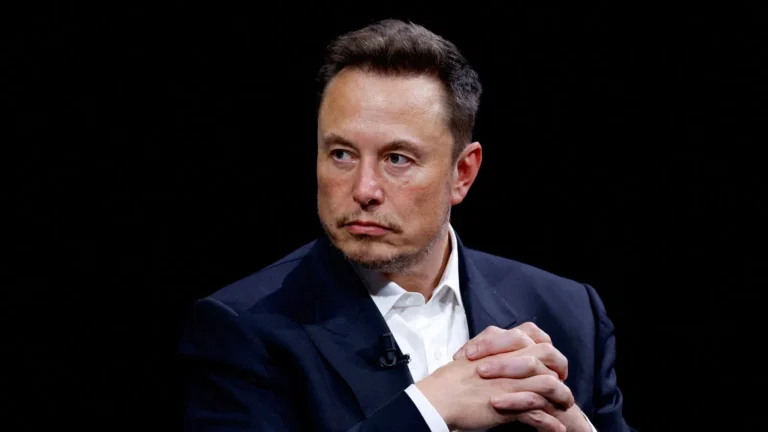China’s Tech Industry Evaluates Potential Impacts of Trump and Harris Presidencies Amid Sanctions
As the U.S. braces for a pivotal election, Chinese technology executives are closely analyzing how the outcomes may influence their industry, particularly in light of ongoing sanctions and national security concerns. The contrasting approaches of Donald Trump and Kamala Harris represent a crucial divergence in potential policy directions, with each candidate’s presidency carrying unique implications for the future of Chinese tech firms.

Trump’s previous administration was characterized by a confrontational stance toward China, initiating a trade war from 2017 to 2021 that included bans on high-tech exports to China. His administration cited unfair trade practices and national security as justifications for imposing tariffs and sanctions, particularly targeting Chinese tech giants like Huawei and SMIC. As Trump campaigns for a return to the presidency, his unpredictable nature raises significant concerns among Chinese executives about how his policies might shift, creating both potential challenges and opportunities for their businesses.
Executives express that a Trump victory could create a more volatile environment for Chinese technology firms. While there is fear that his administration would escalate existing sanctions, some analysts speculate that his unorthodox approach might also lead to unexpected flexibility in U.S.-China relations. This duality reflects the complexities of Trump’s foreign policy, which has historically been marked by abrupt changes in strategy, including a willingness to reconsider measures that may seem overly aggressive or detrimental to U.S. interests.
In contrast, should Harris assume the presidency, industry leaders expect a continuation of President Biden’s more stable and predictable policy framework. Harris is anticipated to build upon Biden’s incremental adjustments to export controls, fostering a more coordinated approach with U.S. allies. This predictability, while less chaotic than Trump’s style, may present longer-term challenges for the Chinese tech sector as they adapt to sustained regulatory scrutiny and ongoing limitations on technological advancements.
The broader geopolitical context plays a critical role in shaping these dynamics. With rising tensions in the South China Sea, increased military activity around Taiwan, and strengthened ties between China and Russia, U.S. policymakers are likely to remain focused on curtailing China’s technological ascent. Regardless of who wins the presidency, new restrictions on technology exports are expected to be implemented as part of an effort to maintain a competitive edge.
Recent analyses from Chinese industry groups, think tanks, and brokerages underscore the mixed sentiments surrounding the potential outcomes of the election. Some reports caution that Trump’s return could deepen sanctions on critical sectors such as semiconductors, exacerbating the already strained relationship between the U.S. and China. Analysts from Shanghai-based Topsperity Securities articulated concerns that a second Trump term could significantly suppress the domestic semiconductor industry due to an escalation of containment policies.
Conversely, a number of analyses indicate that Trump’s unilateral approach could provoke resistance from international partners, potentially undermining the effectiveness of U.S. sanctions. They argue that if Trump pursues a combative stance towards allies in Europe, Japan, and South Korea—nations that also have vested interests in maintaining trade with China—his policies might backfire, allowing Chinese firms to navigate around restrictions more effectively.
Moreover, regardless of the election outcome, China’s technology sector has evolved significantly since the onset of the trade war. The drive for self-sufficiency has intensified, with the Chinese government actively promoting domestic alternatives to foreign technology. Reports reveal a substantial increase in government procurement projects aimed at replacing foreign hardware and software, indicating a strategic shift towards building a more autonomous tech ecosystem.
This push for self-reliance reflects a broader recognition within the Chinese tech industry of the need to insulate themselves from external pressures. Analysts note that even if restrictions tighten under either administration, Chinese firms are now less reliant on foreign technology and better positioned to withstand the impact of changing trade policies.
The recent surge in investments in artificial intelligence (AI) also highlights the resilience of China’s tech sector. As of mid-2023, China accounted for a significant share of large language models globally, demonstrating its ambition to remain at the forefront of technological development despite external challenges. Executives at Chinese technology companies acknowledge the evolving landscape and emphasize the importance of remaining agile in the face of uncertainty.
As the U.S. election approaches, the Chinese tech industry is preparing for a future marked by potential upheaval and transformation. Regardless of who emerges victorious, the lessons learned from the past several years will undoubtedly shape their strategies as they navigate the complexities of an increasingly polarized global environment. “We’re operating under a new normal now,” stated an executive from a prominent Chinese technology firm, encapsulating the industry’s resolve to adapt and thrive amid the uncertainties ahead.






